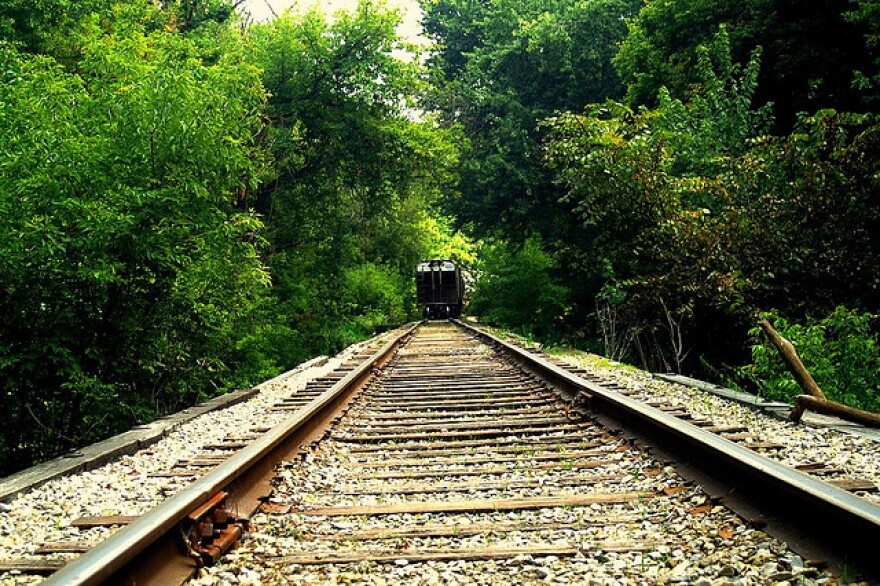http://podcastdownload.npr.org/anon.npr-podcasts/podcast/665/510002/141897531/PUB_141897531.mp3
Governor Rick Snyder met with lawmakers, federal officials and the railroad industry yesterday to talk about the future of rail transportation in our state.
Rick Pluta is the State Capitol Bureau Chief for the Michigan Public Radio Network. He was at the Michigan Rail Summit and he joined me to talk more about this.
So Rick, what did the Governor say?
Rick Pluta: Rebecca, the governor is a big fan of rail service. He says it's a big part of the future of the state.
This is what he had to say to this rail summit:
"This isn't about a piece of rail in Michigan. This is about being the centerpiece of a broader logistical connection that goes all the way from St. Louis to Chicago to Detroit and I would like to see it continue on to Toronto and to Montreal."
An economic corridor
Pluta: For him, this is a critical part of his plans for the state's economic revitalization. And we should say this isn't going to be like the 220 mile per hour bullet trains that they have in Europe and Asia, but faster trains that will go for about 110 miles an hour. And he envisions Michigan being part of this business corridor that runs from the western edge of the Midwest in St. Louis all the way up to Toronto, Montreal, the new port that is being built in Halifax. And Michigan is sort of a central point in that corridor, and that could make Michigan a key player in a Midwestern-Canadian economy.
Competing for tracks
Rebecca: You know, I've taken a lot of train trips to Chicago that were supposed to take six hours and took a lot longer than six hours. What's going on there and what are people doing to fix those problems?
Pluta: What we've got right now is a system of freight vs. passengers. And because almost all the track is owned by freight companies, part of the agreement is that when a freight train is coming and an Amtrak train is en route, the passenger train has to stop.
What state officials are hoping is they can come up with something, you know, better coordination of routes and scheduling of freight trains and passenger trains... more turnouts, where when there are two trains that are sharing the same piece of track, that there's someplace else for them to go... basically you're not going to have the same level of competition for the same track between freight and passenger service, and if there is competition, then it's not always going to be the passenger train that's going to have to stop and wait.
Rail in Northern Michigan
Rebecca: So Rick, is anybody talking about establishing passenger rail lines between someplace in northern Michigan and southern Michigan?
Pluta: Yeah, there's always some talk and it's somewhat whimsical, you know, recreating the tourist trains that were popular in another era. And most of the people I talked to here said that's probably a long way off. But there is a lot of focus though, on improving the freight service from northern Michigan, because there's a lot of manufacturing in northern Michigan, there's a lot of agriculture and agricultural processing in northern Michigan. And so the challenge is, how can you take the track, especially the hundreds of miles of state-owned track, and improve that, so that trains can get eggs from Kalkaska very quickly to markets maybe in St. Louis or somewhere in northern Canada or even to the new port that's being built in Halifax and get it over to potential markets in Europe and Asia more quickly than they're getting there right now.






